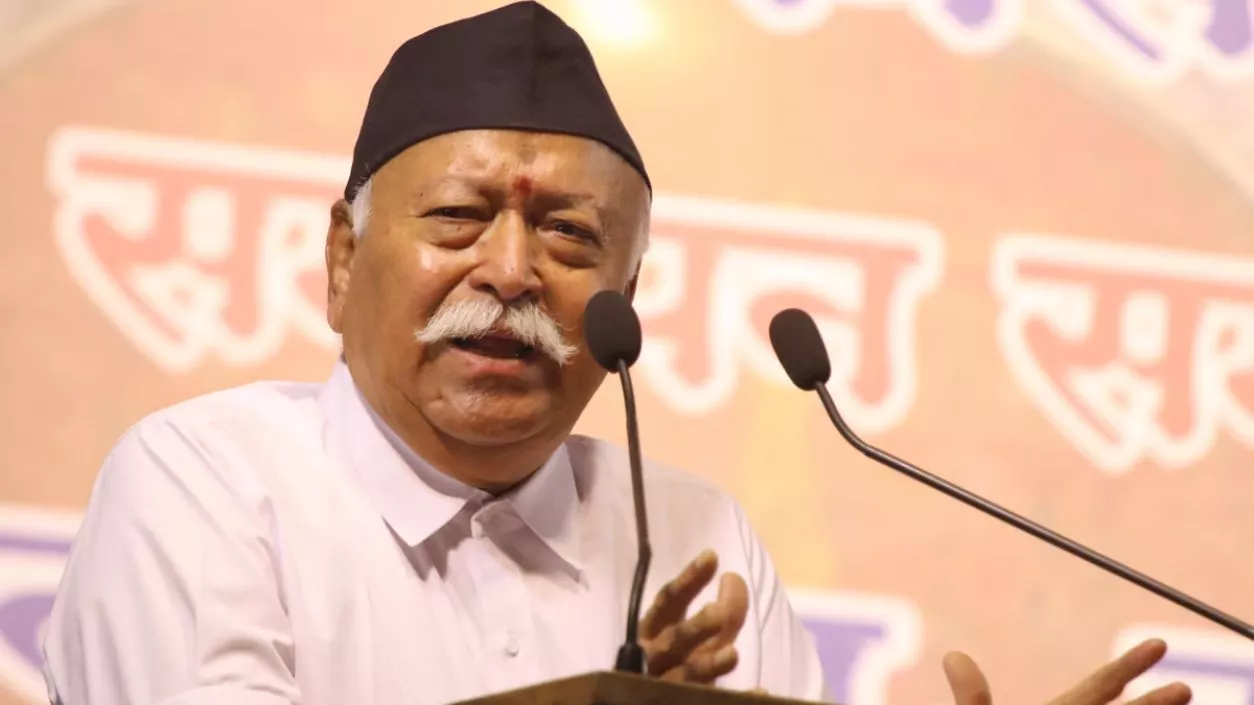.gif)
.gif)

In a recent address at the Mahanubhav Ashram Shatakpurti Samaroh in Amravati, Maharashtra, RSS Chief Mohan Bhagwat emphasized the critical importance of correct religious interpretation to prevent the violence and oppression stemming from religious misunderstandings. Bhagwat stated that "atrocities in the world have occurred due to misunderstanding of religion," underscoring the need for accurate religious teachings to prevent misinterpretations. He explained that religion must be properly understood and taught to ensure followers grasp its true essence. He warned that a partial or incorrect understanding of religion leads to "Adharma," a deviation from righteous conduct, which can result in harmful consequences for society.
Bhagwat elaborated further, stressing that all forms of oppression and violence committed in the name of religion are consequences of these misunderstandings. He pointed out that throughout history, misinterpretations of religious texts and practices have often led to divisions, conflicts, and atrocities. He urged religious organizations and sects to take the responsibility of ensuring that their followers are properly educated about the true teachings of their faith, as the spread of misinformation can cause widespread harm.
At the Hindu Sewa Mahotsav in Pune, Bhagwat reiterated his call for national unity, urging that divisive issues should not be raised to foster enmity within the country. He stated that raising new issues that create disdain and conflict among different communities should be avoided. Bhagwat specifically referred to the Ram Temple in Ayodhya, calling it a symbol of Hindu devotion. While acknowledging its significance, he cautioned against using the temple to create divisions or deepen existing rifts between communities. He emphasized the importance of living in harmony, stating, “We should show the world that we can live in harmony, so we should have a little experiment in our country.”
Bhagwat also highlighted the diverse culture of India, noting that the country is home to multiple religious sects and ideologies. He emphasized that this diversity should not be a source of division, but rather a source of strength. According to Bhagwat, 'Hinduness' represents an eternal dharma that transcends individual religious identities and practices. He explained that this inclusive vision of Hinduness can help unify the different communities in India, fostering a sense of national pride and collective identity.
In addition to his focus on religious understanding, Bhagwat discussed the concept of "sewa dharma," or the duty of selfless service. He described sewa as the essence of Sanatan Dharma, which transcends religious and social boundaries. Bhagwat encouraged people to embrace service as a means of contributing to society without seeking recognition or personal gain. He highlighted that true service is performed with the sole intention of benefiting others and improving society as a whole.
Bhagwat’s leadership has often emphasized the balance between traditional Hindu values and the need for modern societal cohesion. He has consistently advocated for the promotion of unity and respect for India’s pluralistic society. His comments reflect a broader vision of fostering a society where different communities can live together in harmony, with mutual respect for their distinct beliefs and practices. His statements on religious interpretation, national unity, and service reinforce his leadership philosophy, which seeks to integrate traditional values with a forward-looking, inclusive approach for India’s future.